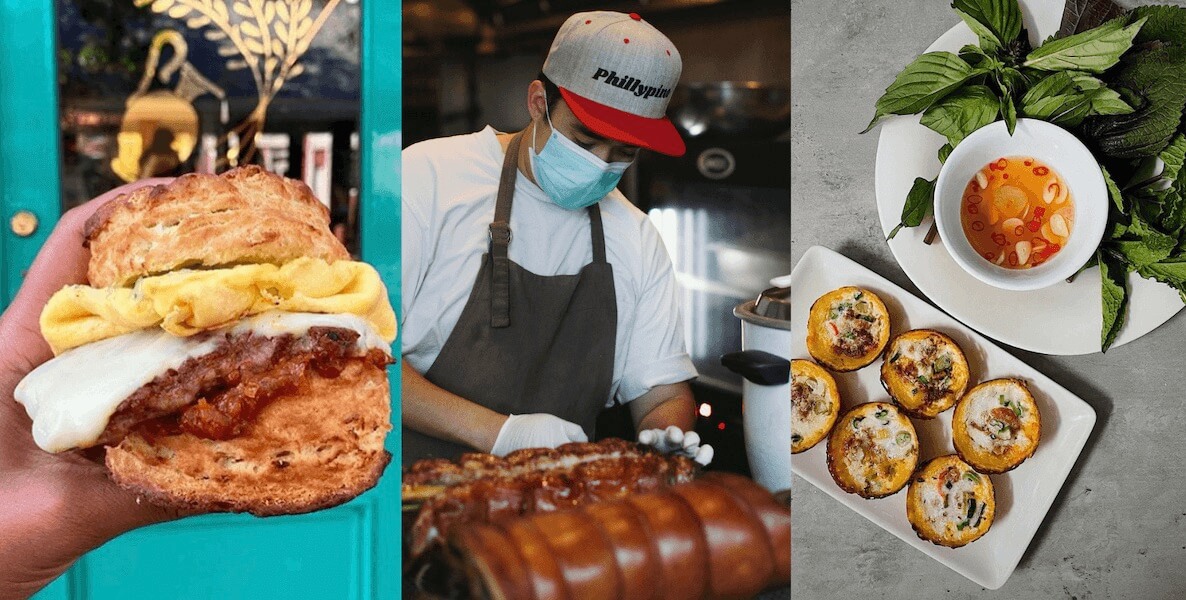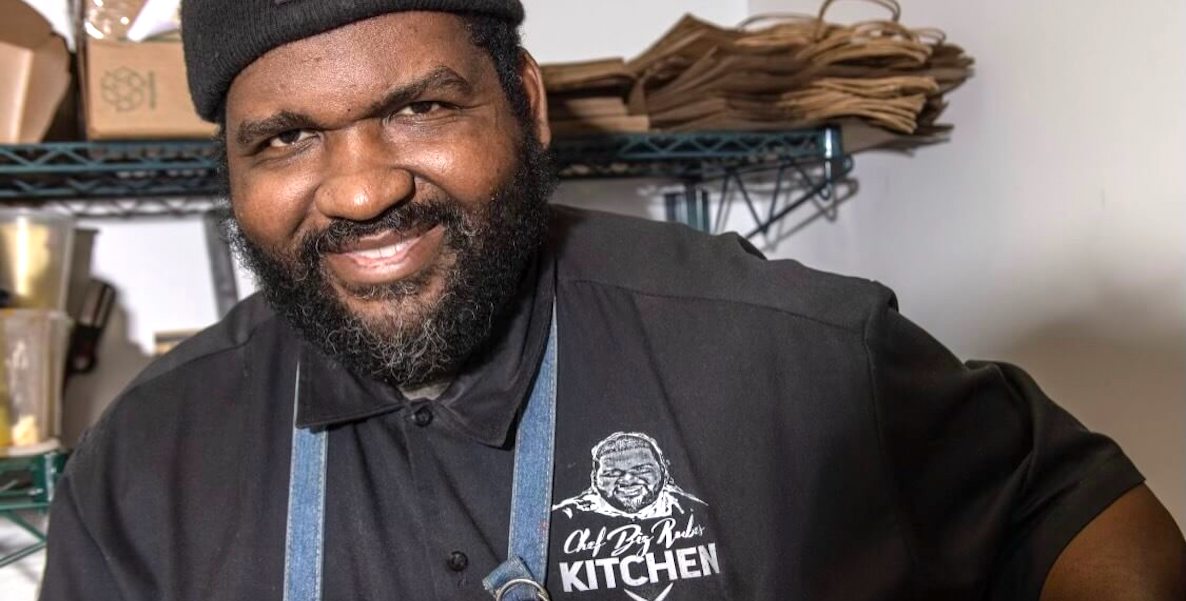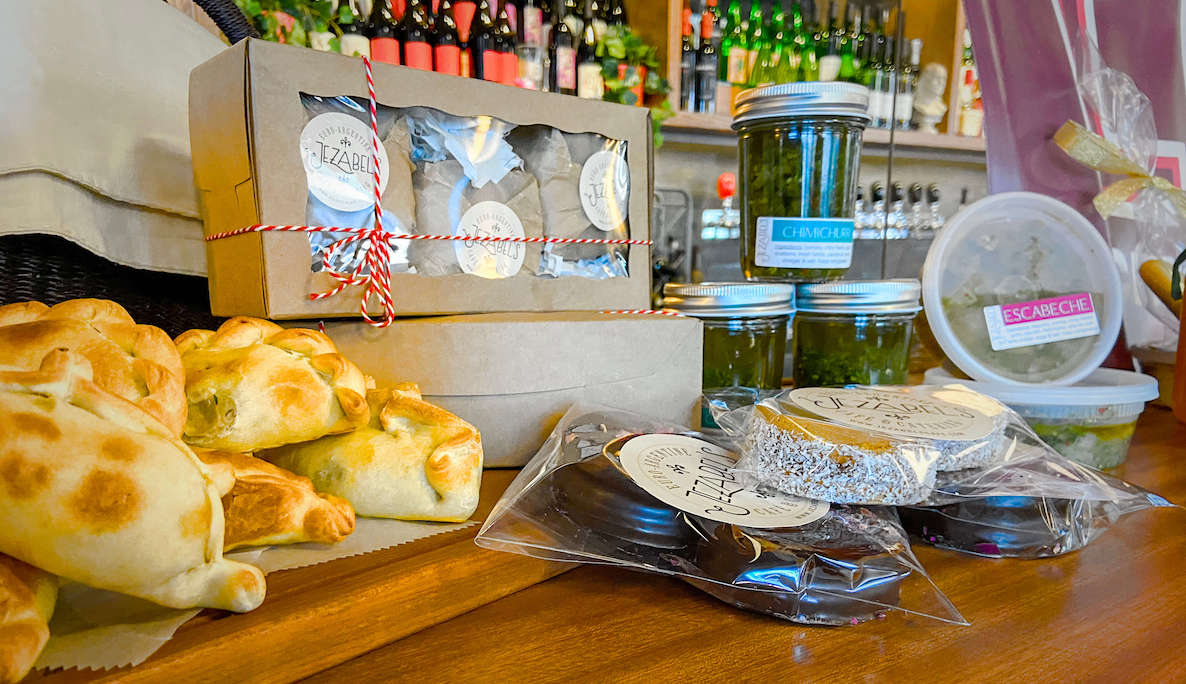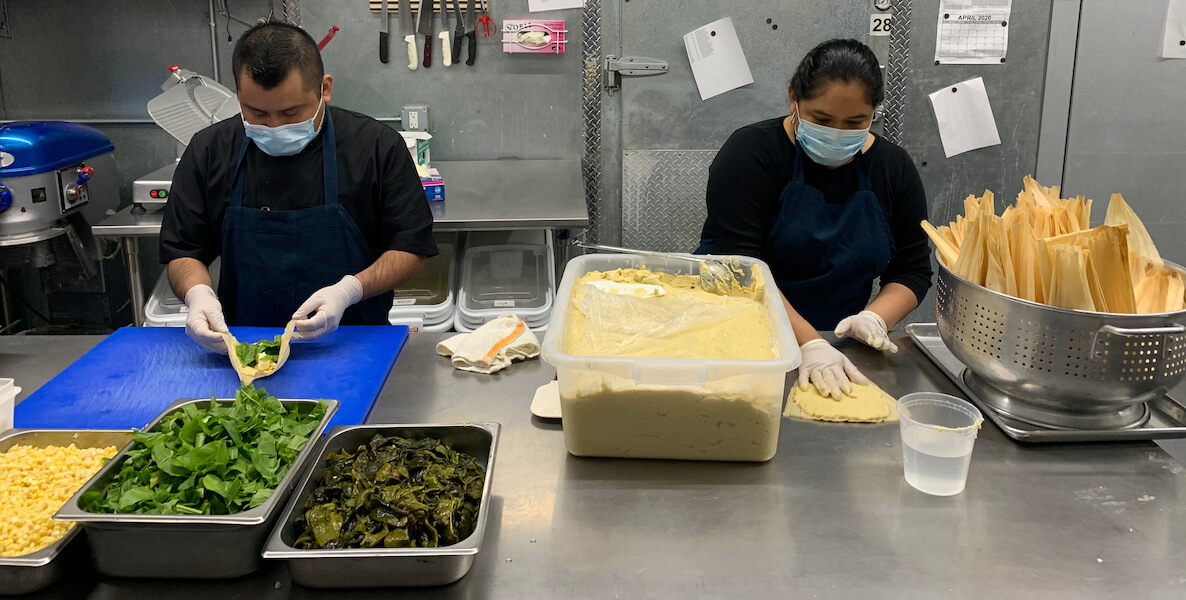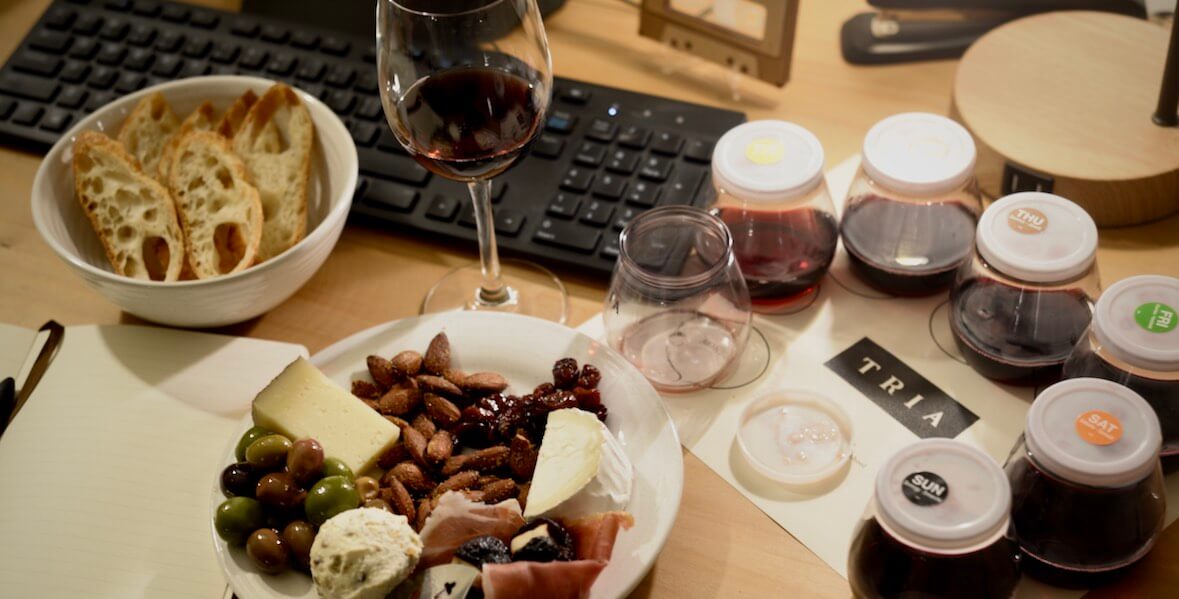Drinking (at home, more than we used to) has become a mainstay of Covid life for many of us—so you might be surprised to learn the wine industry has not been doing so hot. The California wine industry is projecting a 2020 loss of $4.2 billion, with the specialty wine sector as a whole in a 9 percent slump, according to industry analyst ProWein.
While we are indeed consuming more wine at home than we did pre-Covid, there is a net decrease in overall sales, for the first time in two decades, much of that loss due to decreased orders from tourism and the hospitality industry.
MORE ON PHILLY’S FOOD SCENE
- Will drinking natural wine make you a better person?
- Pop-ups bring more diversity to Philly’s food scene—even in pandemic times
- Jezabel’s found a way to not only survive but thrive during Covid
- 13 women-run restaurants to support during Covid and beyond
- We scoped out the best places to eat outdoors in Philly so you wouldn’t have to
For restaurants battling slim margins, rising food, labor and real estate costs, and challenges in recruiting and retaining skilled staff, wine sales can be a make-or-break revenue stream. Consider, for example, the relative effort of $100 in wine sales, compared to $100 in food sales. A $100 wine sale may take just a couple of minutes between the customer request and the service of that bottle. By contrast, $100 in food sales involves multiple dishes, with variously sourced ingredients, prepared by multiple cooks over hours, or even days. And the margins on wine are typically higher than on food.
For wine-focused restaurants like Tria Cafés in Rittenhouse Square and Washington Square West, the pandemic could have killed them. The cafes are known for their long and creative wines by the glass list, where it is easy to spend a cozy evening trying small pours of a variety of wines from around the world. The menu is simple and pairing- and sharing-friendly, with cheese and charcuterie boards and olives as must-orders. It is an ideal atmosphere to be entertained and educated about food and wine—an atmosphere guests have only been able to enjoy in limited capacity.
Like many restaurants in Philadelphia attempting to stay afloat, Tria added outdoor dining, offered takeout and delivery, started selling bottles of wine, and opened for limited capacity when permitted over the past year. But in an industry with already slim margins, those changes alone were not enough.
Not just a restaurant
For Tria wine director Lauren Harris, the chokehold that the pandemic put on the restaurants was an opportunity. She started to think differently about her role as wine director, how she is providing a thoughtful wine selection to her guests, and about Tria as a brand. “Tria is a brand but doesn’t necessarily need to be just a restaurant,” says Harris.
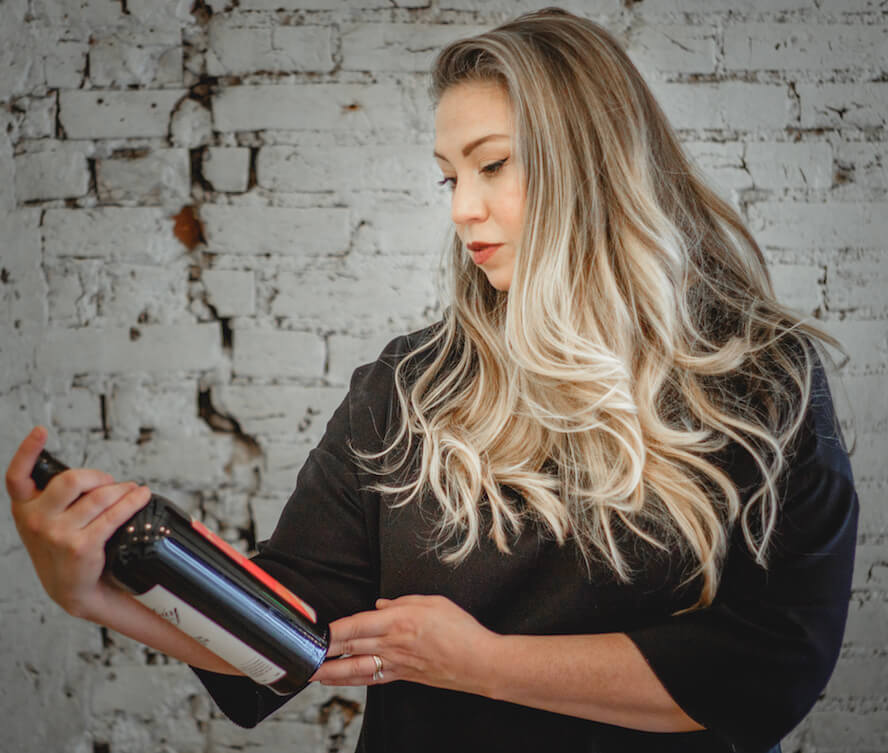
Enter the spring 2020 relaunch of the Tria Fermentation school, fully online via Zoom.
Serious Philadelphia foodies will remember that Tria had a brick-and-mortar wine school—the Tria Fermentation School in the Medical Arts Building at 16th and Walnut, that operated from 2006 to 2015. There, wine lovers would gather for recreational classes to swirl, sniff, and spit with Harris (who was with Tria from 2004-2010 before spending nearly a decade with Tod Wentz and his restaurant group, first as General Manager of McCrossen’s Tavern and then as General Manager and Wine Director of Townsend and then returning), along with visiting cheesemakers and wine makers.
Last spring, they resurrected a virtual version of the school—offering public and private wine classes and special events via Zoom—that has been key to the restaurant group’s survival through the pandemic. Students pre-register and pick up their box of class materials (wine and snacks) earlier in the day at either Tria Café location, then log in to Zoom for the class with other participants.
“The colder the weather, the worse the sales are otherwise—but the more people are willing to do a Zoom class.”
Classes are typically $75 and include snacks and seven or eight two-ounce pours in reusable plastic cups, making it a generous portion tasting for one, or a less indulgent tasting for a couple. Special event tastings are priced at $200 per couple and include some full bottles.
“Depending on the month, [The Tria Fermentation School] had a moderate to major impact on our ability to survive,” Tria owner Jon Myerow says. Classes provided needed revenue during the early days when dining rooms were completely shuttered, but their systems for take-out and infrastructure and permitting for outdoor dining was still in development. It was also critical in the winter months, when indoor dining was banned and, despite the heaters, outdoor dining was just too dang cold for guests.
In December and January, Zoom classes accounted for one-third of the total sales of Tria Rittenhouse, Myerow says. “The colder the weather, the worse the sales are otherwise—but the more people are willing to do a Zoom class.”
The classes attract Tria regulars but also introduce new guests, even those from far beyond the Philadelphia region, to Tria. Since its relaunch, over 2,500 registrants have taken classes, with an additional 900 attending private virtual events. Typical class sizes range from 40-60 in a typical week with special events and private classes uniting as many as 200. “Some people are just looking for something to do,” says Harris. “And it helps that they come back to the cafes to buy bottles that they tried in class,” Harris says.
The online format allows participation not only from a wider range of students, but also professionals. “Winemakers from Europe pop on the Zoom call. South Africa, Australia, and so on. They can be anywhere as long as the timing works. We used to get them at the [physical] Fermentation School if they happened to be in town for sales tours, but now it’s much easier.”
The hope is that those audiences continue even after Tria gets back to normal.
The approach is part of a broader acknowledgement that the old days of opening the dining room and waiting for guests to arrive is no longer enough for a restaurant to thrive—if it ever was.
“We used to have a [brick-and-mortar] school, but the room capacity was 24,” Myerow says. “With online classes the capacity is unlimited.”
A permanent pivot
Philadelphia restaurants like Kalaya, Musi and Noord—supported by the platform Chefstream, which takes care of the logistics—also offered livestream classes during the pandemic to help make ends meet. The approach is part of a broader acknowledgement that the old days of opening the dining room and waiting for guests to arrive is no longer enough for a restaurant to thrive—if it ever was. With more people communing over Zoom with the regularity we used to reserve for communing at the table, online food and wine classes are another addition to the hospitality portfolio that will likely stay with us even after we return to full dining rooms.
Tria’s classes are geared toward everyday people who enjoy good food and wine, not experts, and are offered about once per week, typically on weekend evenings. Fermentation in this case means wine, beer, cheese (with an occasional cider). Topics range from explorations of particular regions (Alpine, Spain, Southwest France, “Italian Reds for Springtime Pleasure,”) to styles (Bubbles, Big Reds). Special occasion classes like “A Luscious and Bubby New Year’s Eve (sparkling wines and creamy cheeses) and “A French Love Affair” for Valentine’s Day are team-taught by Harris and Tria Cheese Director Madame Fromage, the nom de plume of St. Joe’s English Professor Tenaya Darlington. Other classes are taught by wine professionals such as importers and marketers.
The Fermentation School format frees Harris to do things she couldn’t do in the cafes. “I can do this whole tour of, I don’t know, Tuscany, and taste all these beautiful wines that you wouldn’t necessarily go in and purchase without having tried them,” she says. “Maybe you’ve never had a Brunello di Montalcino and you don’t know whether it’s worth every penny. We kind of paint this picture with the wine and snacks and cheese and fun stuff.”
For restaurants battling slim margins, rising food, labor and real estate costs, and challenges in recruiting and retaining skilled staff, wine sales can be a make-or-break revenue stream.
“Approachable,” is the term Harris uses in describing her teaching style and the level of the classes. There is little of the wine snobbery associated with wine tastings. Classes are interactive with an active chat, growing more active and more entertaining by the mid-point of the tasting.
Restarting the fermentation school was in the back of Harris’s mind when she returned to Tria, but was a back-burner project, a “maybe someday.” But the pivoting necessitated by Covid made it a big part of Harris’s role and opened up new relationships.
“It’s always exciting to be exposed to a new group of people for restaurants. I think sometimes when you’ve been around for a long time, that’s a hard thing to tap into,” she says. Rather than spending a few minutes with a guest, sharing an anecdote about a wine or winemaker, or helping a guest navigate the list, Harris now spends hours with her regulars online each month.
Inspired by the success of the online school during the pandemic, Myerow hopes it will be a permanent addition to Tria’s offerings. He envisions offering private, social and corporate classes, perhaps eventually in a physical location with a hybrid option. “We’d love to do this on-premise again as long as it is safe and legal,” he says.
Header photo by Dane Lamotia


